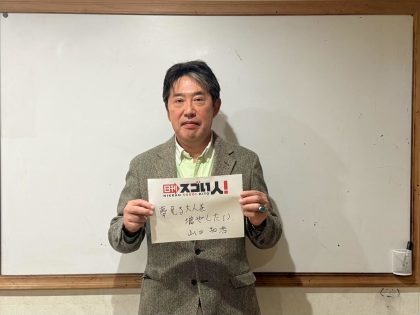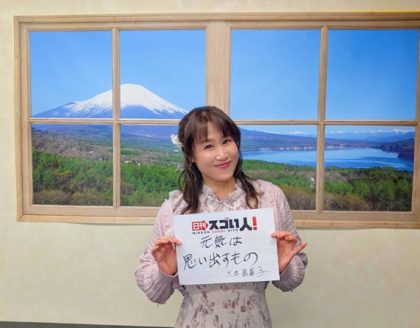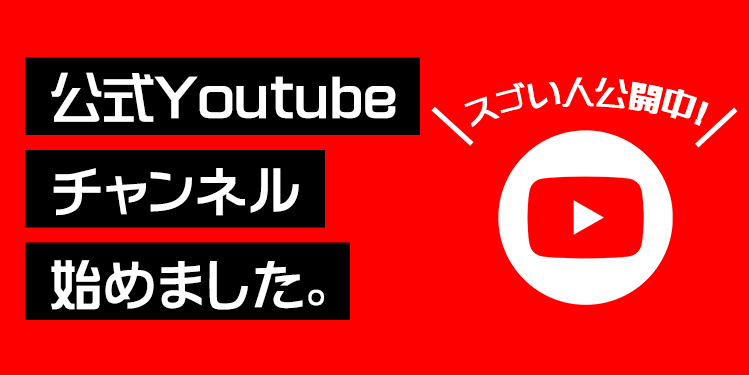)
Article with a current university student
Today we will report on a discussion between Mr Kenjiro Shinozuka and a university intern.
The university student likes to ask direct questions that are difficult to answer. Mr Shinozuka gives sincere honest answers.
University Student (From here on to be referred to as U): Hello, nice to meet you. Thank you for your time.
As it's the start, could you tell me what caused you to become interested in rally driving?
S: Upon turning 18, young people yearn to get their driving license and buy a car.
I was the same, and soon after turning 18 I received my license and bought a second hand car, which I intended on using whilst at university.
It was that sort of life, but from time to time my friends would ask me to do a rally with them.
It was in this way that I first became acquainted with the word rally.
U: So until university you didn't know of the existence of rallies?
S: That's right. My friends kindly explained many things about it for me.
For a long time I had been interested in cars, so I made a group with those friends and together we took part in rallies.
At the start I was a navigator (a person who sits next to the driver and assists them with information relating to the course).
The course started in Tokyo, went out and around the Fuji Five lakes, and then back to Tokyo for the finish.
The rally start on Saturday evening and finished on Sunday morning.
At that time, when running along a gravel path for the first time I experienced my first ever slide to the side. Until then I'd never experienced a car slipping to the side and so it was fascinating.
I remember thinking, that was amazing, and I started attending school less, working a part time more to save up and take part in more rallies.
U: During that time how often did you take part in rallies?
S: Normally once or twice a month. For 2 years I lived like this, rallying with my friends.
In this way I took part in many different tournaments and from time to time I met people from the Mitsubishi team and became friendly with them. In my 3rd year at uni they invited me to drive one of their cars the next year.
This type of invitation to drive a car for a manufacturer's team was like a dream come true, so of course I immediately accepted and that's how I came to drive Mitsubishi cars. At the beginning I was a navigator, but after a year one of the 4 people left and I automatically became the driver. So from my 4th year in university I was the driver for the Mitsubishi team.
U: Before you were invited to join the Mitsubishi team, did you ever consider becoming a pro in the rally scene?
S: Not at all, I wasn't even aware of pros being a thing, I had just thought it would be great if I could keep competing.
At this time the only pros in Japan that could afford to make a living were baseball players, pro-wrestlers and sumo wrestlers. There weren't really any other types of pro out there. There wasn't even the J-Leauge. So for there to be racing Pros, I hadn't the faintest idea that such a thing as a car racing pro existed.
From when I started driving for Mistubishi, I had a string of victories in consecutive rallies, but at that time I was still looking for a job.
It was a somewhat hazy time, and so I thought, hey why not join Mitsubishi. At the time there were no special activities for a pro driver and so I took the entrance examination like normal to join Mitsubishi.
U: Amazing (laughs). Given the ideas we have now, it feels like an unbelievable story.
S: After becoming a worker for Mistubishi we had a discussion and they asked me to also drive rallies for them too, but most of the time I was doing normal work, only during the rallies did I get to go.
At the start it was like I was wearing two hats. Compared to now it was a very minor sport, so to continue being able to take part in the rallies that I loved so much, I knew that I had to show that there was gains to be made for the company in the rallying area of the industry.
When the time came for the company to allocate budgets, rallying was low on the list of many areas the company operated in. It was the sort of situation where the budget didn't seem enough and soon people would give up. So I decided to show the companies the importance of rallying and raise awareness of it, by getting exposure through appearing on television, and other means with the eventual goal of selling more cars.
U: Mr Shinozuka, in your book, “The Era of Rally Loving Idiots”, I read “there is work you can do because you are a salaryman”. Therefore, is there any sort of advice you would like to give to us university students for after we join society and become Salary Men?
S: Salary man isn't a word generally used in a positive light, right?
Somehow you have to follow the word from those above, and can't do what you really want.
To take part in a rally I had to fill out a planning form, but to write the form yourself and then stamp it yourself, only a company worker can do that.
If you are outside the company as a free driver, you can't do that.
As a company worker, you can use the company's money and reputation.
U: If you receive the company's reputation, then the breadth of what you can achieve really opens up.
S: That's right. The company's reputation is an amazing thing.
When you are working as a salary man you probably don't feel it, but when you retire you'll definitely notice the difference.
In due time your business cards will run out, and people will stop talking to you.
Once retired you will come to realise that until now, you were talking more about your official position on your business card, rather than truly about yourself.
Therefore, whilst you are in a company, using the company's reputation and money, that is to say using the other people in the company you are able to do the things you want to. This way of pooling power is great, don't you think?
U: Thank you Lastly, whilst working for Mistubishi, there was the scandal where Mistubishi covered up defects rather than recall them, leading to a series of accidents. The primary cause of this has often been said to be the hostile environment created by the words and expectations of top members of large companies.
Many university students like me will join big companies, so is there anything that you think we need to be mindful of?
S: Yes, basically everyone is too straight and serious.
If a manager says, let's develop this engine by this time, everyone says, yes and starts development, but there are many reasons that can lead to development missing the deadline. However, they can't just simply say sorry, we cannot make that deadline. The people working in the development facilities most likely know that it's impossible at this time. However, it's common among middle management to always say, “I can do it”, to those above you. Therefore, unless it's a company with a culture where workers feel free to give their honest opinions mistakes will happen.
U: When you are in middle-management, it's important to become someone who can speak to those above, right.
S: That's right, that's right. You often hear this about companies with a bad work culture, the middle management cannot say anything but good things when talking to those above them.
In reality there are problems occurring in the workplace, but that is not communicated to the higher ups.
Therefore, as you become more important, you are able to make more errors of judgement.
However, in middle managers do not want to lose their heads, so they only say good things.
This is often called the plague of big companies.
U: I think that as I work I will try and be aware of what sort of person I am becoming.
S: That's good. In big companies many people are like that. However, from now on I think young people will be very different. Good luck, work hard!
U:I see, thank you.
Interviewer:ALLES Writer:MAYA English:Tim Wendland
◆Shinozuka Kenjiro
1971 entered Mitsubishi Motors
1978 won at Dakar Rally
- Books “The Era of Rally Loving Idiots” (2006.Nikkei BP)
- Official HP https://shinozukakenjiro.jp/
- Shinozuka family owned hotel La VERDURA









